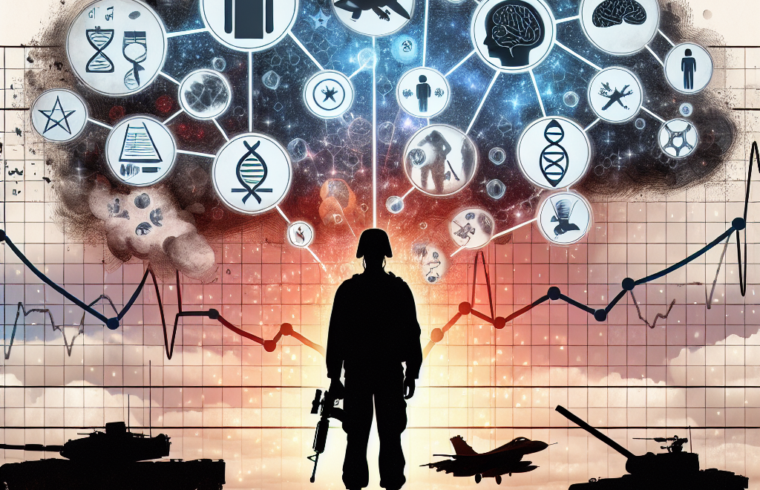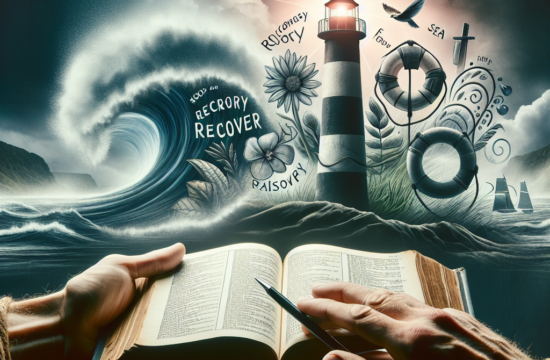Understanding PTSD and Its Symptoms
What Is PTSD?
Post-Traumatic Stress Disorder (PTSD) is something that many veterans struggle with after their military service. It’s not just a bad memory; it can leave a person feeling haunted by traumatic experiences long after they have left the battlefield. It’s like carrying around this heavy backpack filled with past experiences that you can’t seem to put down.
==> Thank you for reading this post! Click Here If you are looking for support and Victory over PTSD.
The symptoms of PTSD can be pretty intense. They often include flashbacks, nightmares, and severe anxiety that can hit unexpectedly. Imagine you’re having a chill day, and suddenly a sound or a smell brings you right back to a traumatic moment—that’s PTSD in action. It’s exhausting and frustrating.
Understanding PTSD isn’t just about reading definitions; it’s crucial for veterans and their loved ones to really grasp what’s happening. The more we talk about it, the less stigma there is surrounding these experiences. And that’s vital for healing.
How Does PTSD Affect Daily Life?
The impacts of PTSD can stretch far beyond just flashbacks. I’ve seen veterans struggle with everything from maintaining relationships to holding down jobs. When you’re constantly on edge, it’s challenging to find peace, even in the simplest parts of life. Picture going to a family gathering and feeling restless or overly cautious—it really puts a damper on things.
Daily tasks can feel monumental. Simple things, like grocery shopping, can trigger feelings of anxiety or paranoia, making it difficult for veterans to just enjoy a day out. That sense of normalcy feels like a dream when every little situation can turn overwhelming.
Sleep can be incredibly elusive, too. Insomnia is a common companion for many veterans with PTSD, as racing thoughts or fear of nightmares prevent a good night’s rest. Trust me, when you’re deprived of sleep, it can chip away at your patience, mood, and ultimately your mental health.
The Link Between PTSD and Depression
You might be wondering, “But wait, how does all of this tie into depression?” Well, that connection is tight. Many veterans with PTSD also experience depression. It’s like being trapped in a room filled with shadows where hope seems far away. The hopelessness and despair feed off the trauma, creating a vicious cycle that’s tough to break.
Depressive episodes can stem from the constant stress that PTSD brings into a person’s life. When someone feels like they have no control or when symptoms prevent them from enjoying things they once loved, it’s natural to spiral down into a depressive state. It’s like losing a part of yourself.
Recognizing this link is so important for getting proper treatment. It’s not just about managing PTSD; it’s about healing the entire person. Acknowledging both conditions can open the door to more comprehensive treatment options that address all angles of mental health.
Acknowledging the Role of Support Systems
Family and Friends: The First Line of Defense
When a veteran is grappling with PTSD and depression, having a strong support system is crucial. Family and friends can sometimes feel helpless, but just being present means the world to someone who’s suffering. They should know that their role is foundational; it’s all about being there, whether that’s listening or just sharing a quiet moment together.
Open communication is key. Veterans may find it tough to open up, but encouraging conversations can help break down those walls. I’ve noticed that when loved ones actively listen, it helps veterans process their emotions and feel validated.
Sometimes, though, just showing up isn’t enough. Encouraging loved ones to join in on therapy sessions or support groups can lead to better understanding and enable effective coping strategies. It’s not just about individual healing but working together as a unit.
Professional Help: Therapy and Counseling
When symptoms become overwhelming, seeking professional help is truly a gamechanger. Therapists who specialize in PTSD and depression can provide a safe space for veterans to express themselves without judgment. Here, they can peel back the layers of trauma and learn coping mechanisms tailored to their needs.
There are various therapeutic approaches available—Cognitive Behavioral Therapy, EMDR, and even group therapy. Each serves a different purpose, but the objective remains the same: to help veterans reclaim their lives and find peace amid their internal battles.
Also, don’t forget about medication. For some veterans, a balanced treatment plan that includes medication has made a huge difference. It’s all about finding what works best for the individual, and that can require some trial and error. Patience is essential here.
Community Resources and Support Groups
Sometimes, semi-structured environments can offer benefits that therapy alone can’t reach. Support groups can be instrumental for veterans as they connect with others who understand their struggles. Knowing you’re not alone in this battle is powerful—there’s nothing like shared experiences to foster healing.
Get Support and Help with Recovery! Visit us for more Information and Support
Community organizations often provide a plethora of resources: from job training to hobby clubs. Engaging in activities or services can foster a sense of belonging and purpose, which is sometimes lost during periods of depression and PTSD.
Lastly, never underestimate the power of social interaction. Simple gatherings, public speaking forums, or volunteer opportunities can rekindle that spark and remind veterans that life outside of trauma can be vibrant and fulfilling.
Breaking the Stigma Around Mental Health in Veterans
The Importance of Talking Openly
One of the most formidable barriers veterans face is stigma. In society, there’s still a lingering belief that seeking help is a sign of weakness, but that couldn’t be further from the truth. It’s courageous to confront your challenges and seek help. I mean, there’s real strength in vulnerability!
When veterans share their experiences openly, it paves the way for others who are struggling to seek help. Vulnerability can foster connection and understanding, and it builds a community where healing can occur. I feel inspired every time I see veterans rally together to share their stories.
Let’s normalize conversations about mental health! It’s imperative. The more we discuss it, the more we can dismantle the stigma and create an empathetic environment that encourages veterans to take those crucial first steps toward mental wellness.
Educating Others About PTSD and Depression
Education is a powerful tool in breaking down stigma. By providing accurate information about PTSD and depression, we can foster understanding amongst those who may not fully grasp the gravity of these conditions. Resources like articles, documentaries, and webinars can help paint a clearer picture of what veterans face.
Additionally, the role of organizations dedicated to veterans’ welfare is critical. They often not only assist veterans but also host workshops and seminars to elevate awareness amongst the general public. This aids in building empathy and fosters greater support within communities.
And let’s not forget about our schools and workplaces. Building mental health awareness programs in these settings can lead to cultural shifts that make it easier for veterans to seek support without fear of judgment.
Advocating for Policy Changes
Finally, advocating for policy changes is vital in addressing systemic issues that veterans face. Engaging in discussions about mental health funding and resources can lead to tangible changes, such as improved access to healthcare and support services.
Working with local representatives to raise awareness about PTSD and depression can lead to increased funding for programs supporting veterans. Your voice matters in ensuring that those who sacrificed so much have the resources available for their mental health care.
Joining advocacy groups can amplify your impact. Together, we can create a united front that pushes for change, because every veteran deserves the best care available, and that includes mental health services.
Frequently Asked Questions
1. What are the common symptoms of PTSD in veterans?
Common symptoms include flashbacks, nightmares, severe anxiety, and emotional numbness. Veterans may also experience irritability and difficulty sleeping.
2. How can family and friends support veterans dealing with PTSD and depression?
They can provide emotional support by listening, encouraging open communication, and participating in therapy sessions. Just being present can make a huge difference.
3. What types of therapy are available for veterans?
Some effective therapies include Cognitive Behavioral Therapy (CBT), Eye Movement Desensitization and Reprocessing (EMDR), and group therapy focused on shared experiences and healing.
4. Why is it important to break the stigma around mental health for veterans?
Breaking the stigma encourages veterans to seek help and openly discuss their struggles, helping to foster understanding and support within their communities.
5. How can I advocate for veterans’ mental health needs?
You can advocate by raising awareness, contacting local representatives about mental health policies, and supporting veterans organizations that provide resources and care.












